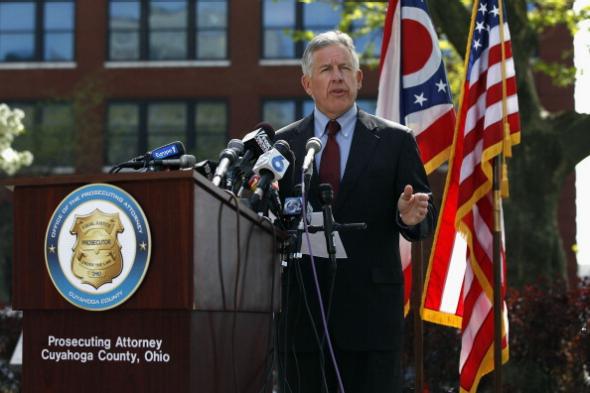The grand jury that declined to indict two police officers in the death of 12-year-old Tamir Rice never actually voted on whether to bring charges, an investigative report from Cleveland says, leaving open the question of how the controversial decision was actually reached.
The alt-weekly Cleveland Scene’s report revolves around the concept of the “no-bill,” which is the name for a grand jury’s formal decision—arrived at by voting—not to bring charges in a given case. (The opposite of a “no-bill” is a “true bill,” i.e. a decision to indict.) When Cuyahoga County prosecutor Timothy McGinty announced on Dec. 28 that officers Timothy Loehmann and Frank Garmback would not be charged in Rice’s death, he said only that the grand jury “declined to indict” the officers, leading many observers to assume that a no-bill had been voted on. But the Cleveland Scene’s reporters could find no documentation of such a decision, and a spokesman for the Cuyahoga prosecutor’s office responded to the publication’s queries by saying that there had been no vote.
Two area law professors told the Scene they had never heard of a grand jury behaving in such a way. What’s more, reporters were unable to find any official documentation in the Cleveland court system of the grand jury having concluded its business:
We were then directed to the Cuyahoga County grand jury office. Wednesday morning, a clerk there told Scene that the “mysterious document” may or may not exist and that, even if it does, it could only be provided to us via court order by Administrative and Presiding Judge John J. Russo … Russo, who spoke to Scene by phone, professed to be as confused as we were. “When you say ‘document,’ I’m not sure what you mean. I don’t know what that is. It’s either a true bill or a no bill,” he said.
But actually, no.
His staff determined Wednesday that a “no-bill” had never been filed.
What any of this means for Rice’s case is unclear. A lawyer representing the Rice family said the lack of a no-bill could constitute another indication that McGinty—who formally recommended against indicting Loehmann and Garmback and presented expert reports to the grand jury that backed up his recommendation—had not taken the idea of prosecution seriously.
A federal investigation into Rice’s death is reportedly ongoing; Rice’s family has also filed a wrongful death lawsuit against the officers involved.
